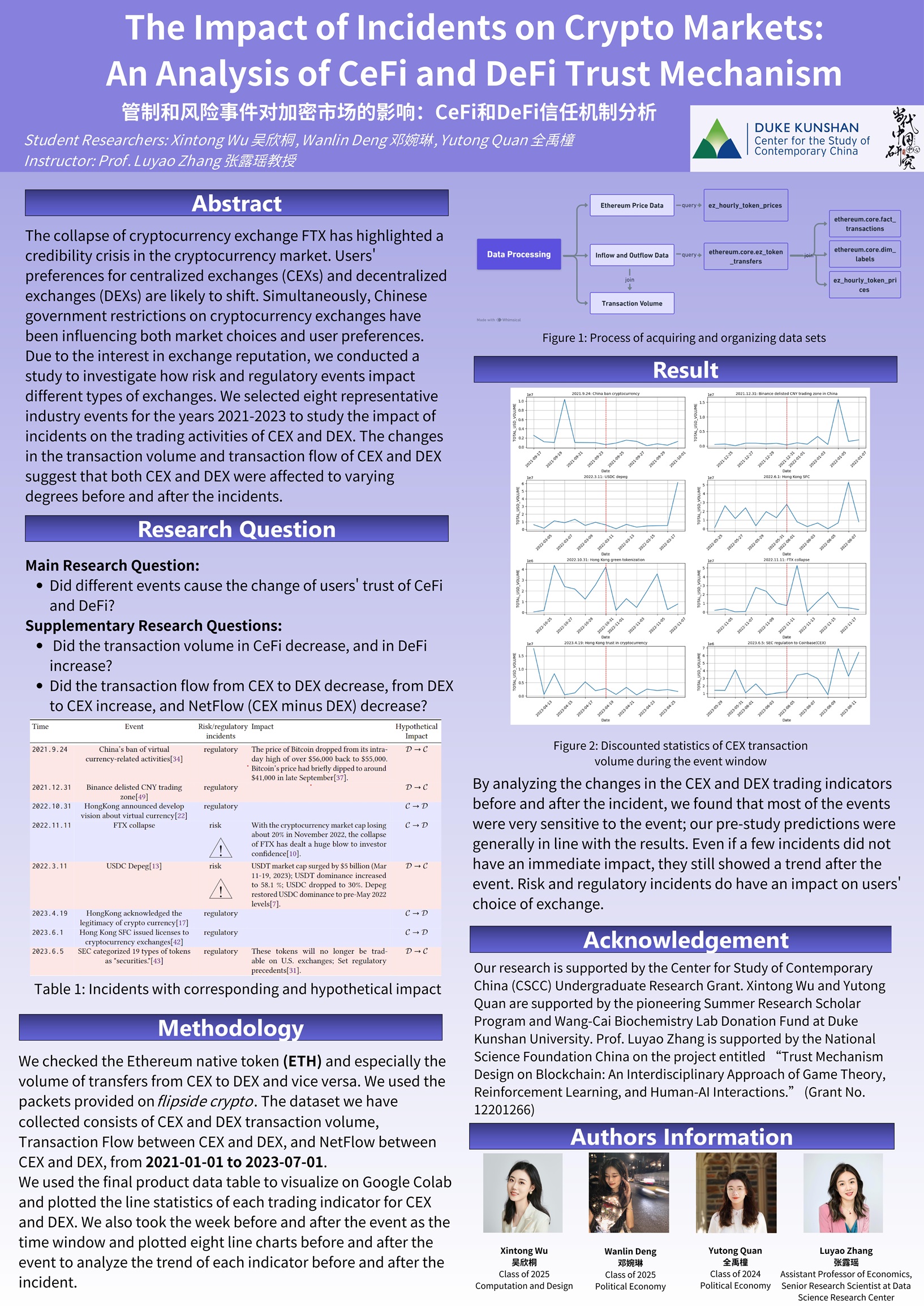Supervisors: Luyao Zhang, Assistant Professor of Economics and Senior Research Scientist at the Data Science Research Center
Student Researcher
Wanlin Deng is a junior student majoring in Political Economy at Duke Kunshan University. She possesses a profound passion for economics and computer science, with a solid academic background in both areas. Wanlin’s primary areas of interest revolve around blockchain technology and trust mechanisms. Under the mentorship of Professor Luyao Zhang, she is dedicated to conducting research that explores the repercussions of exchange bankruptcies on trust within the cryptocurrency domain.
Yutong Quan is a student in the class of 2024 at Duke Kunshan University, majoring in Political Economy with an Economics track. Interested research areas include blockchain, decentralized finance, and interdisciplinary fields of Artificial Intelligence and economics.
Xintong Wu is a student in the Class of 2025 at Duke Kunshan University, majoring in Computation and Design. Her interested research areas are digital design, digital market research, and metaverse. She hopes to delve into the dynamic interactions between technology and society in the future Web 3.0 era and explore the infinite possibilities that technology can bring.
About the Project
The collapse of cryptocurrency exchange FTX has highlighted a credibility crisis in the cryptocurrency market. Users’ preferences for centralized exchanges (CEXs) and decentralized exchanges (DEXs) are likely to shift. Simultaneously, Chinese government restrictions on cryptocurrency exchanges have been influencing both market choices and user preferences. Due to the interest in exchange reputation, we conducted a study to investigate how risk and regulatory events impact different types of exchanges. We selected eight representative industry events for the years 2021-2023 to study the impact of incidents on the trading activities of CEX and DEX. The changes in the transaction volume and transaction flow of CEX and DEX suggest that both CEX and DEX were affected to varying degrees before and after the incidents.



